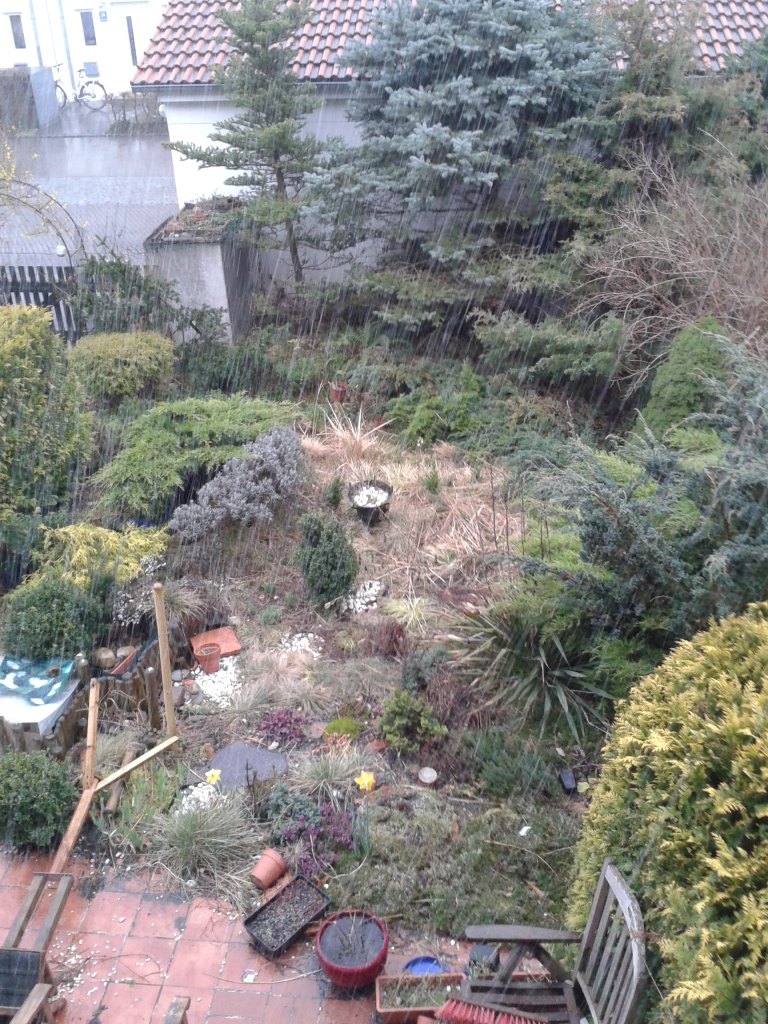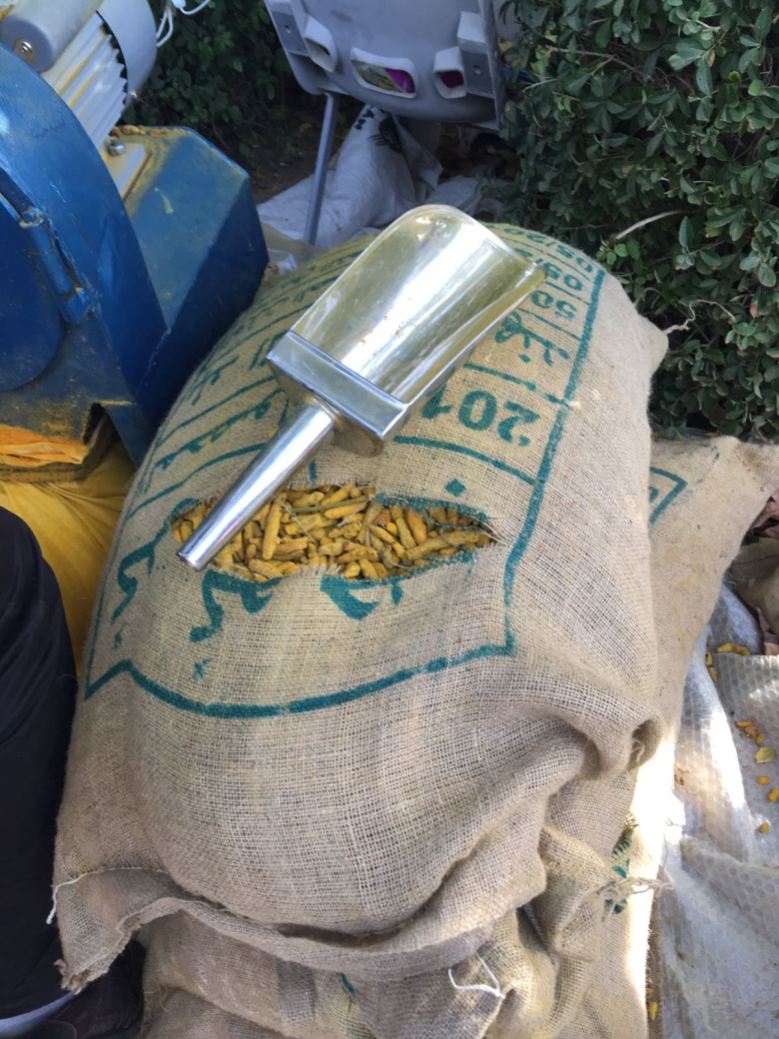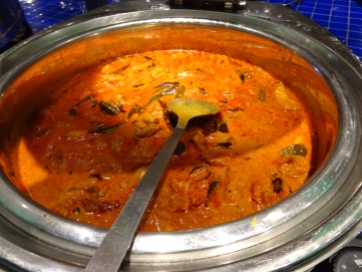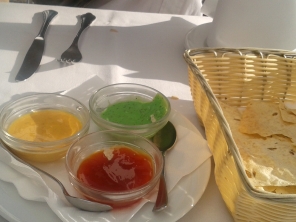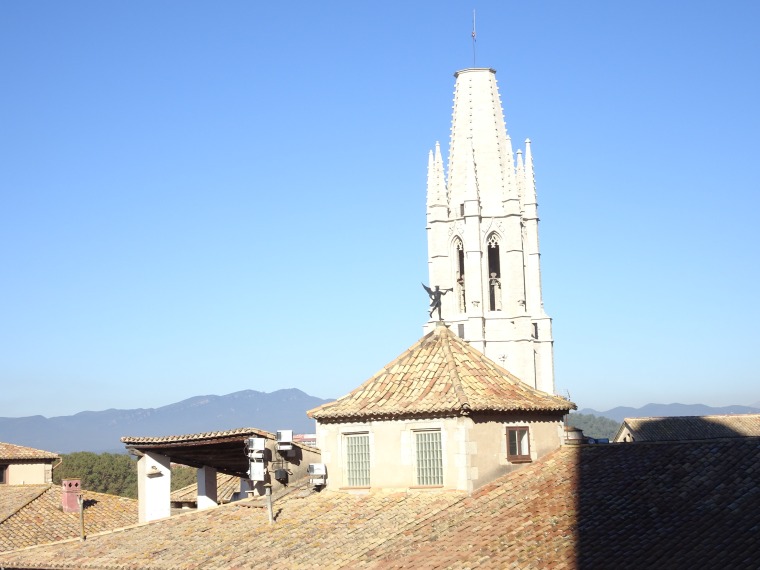
Have you ever tried to change someone in your life?
How’d that work out for ya?
I am reblogging one of my early posts 2 years ago, about the Filipino migrant workers, trying to understand our situation and just accepting it.

Area of Expertise: Migration
Case Study: The Filipino Migrant Workers
The Country’s New Heroes
What makes people leave their countries to seek a better life? Is it because of demography, economics or politics? Great differences in trade between rich and poor countries have resulted to neo-colonialism. Adaptability of people has subjected man to a new form of subjugation. Migrants play a crucial role in filling up labour shortages, especially in the first world countries.
The Philippines, with the population of 83 million, have a fast declining mortality, increasing life expectancy and rapid population growth brought about by modernisation. They have numerous young labour force entrants. In the context of socio-cultural reality, migration in the Philippines is an issue of survival. Filipinos are leaving their country for economic reasons. These migrants are to be found in all highly-developed countries, but also in the Gulf, the new industrial countries, and Japan.
This case study will explore the different issues of migration and the Filipino migrant workers. The efficient management of the Philippine government, foreign affairs departments, institutional structures, migrant associations and advocacy groups concerned with migration requires a multitude of skilled specialists who combine their expertise to work out a solution. The experts are the Filipino migrants, with their varied skills, their determination, experience, remittances, technology transfer, new knowledge and attitudes.
The Philippines, as a lower middle income country, have about 8 million people abroad, close to 10 per cent of the population. To a large extent, it is an emigration country because of lack of rapid and incessant economic development. The Marcos dictatorship in the Philippines started a structured labour programme partly in the hope of lessening dissatisfaction with the plundering character of the regime and its incapability to ameliorate standards for the masses. The government sees labour export a vital and enduring aspect of economic policy and seeks to maximise it. Filipino migrant workers have become the Philippines’ largest sources of foreign exchange. In its development policy (2001-2004) under the Arroyo administration, the government now explicitly recognizes overseas employment as a “legitimate option for the country’s work force.” Thus, from managing the flow, the government now assertively promotes international labour migration as a growth stratagem, especially of the higher skilled, knowledge-based workers (Go, 2002).
Within the category of economic migrants, many highly-skilled Filipinos find work in the USA and Europe – often encountering employment downgrading (e.g. from doctor to nurse) in the process. Filipina domestic workers often have quite high educational eligibilities, which are wasted in their low-level jobs abroad. They are mostly employed in private homes where they are largely unprotected since the Philippine government often has no bilateral agreements with these countries. Some of them experience exploitation and abuse. Filipinos with middle-level and technical skills find work in construction, processing industries and other sectors in the Gulf. However, more Filipino overseas workers move to low-skilled jobs in a wide range of sectors, including seafaring. Seafarers often have low wages and poor conditions. Undocumented migration seems to be on the increase, because of the amalgamation of tighter controls and continuous demand for labour in receiving countries. Losing the expertise of all these people in the Philippines brings money, but doesn’t that also mean that you need expertise from outside if you lose yours by downgrading and outsourcing?
The transfer home of migrant earnings and savings is generally seen as the most important positive effect of migration in the Philippines. These remittances enable the migrants to build houses, send family members to school and pay for their parents’ medication. They help improve the country’s economy and sustain the local population. On top of remittances, if and when these migrants return to the country, they will bring with them greater amounts of training and experience contributing to social capital. There are also negative effects: the Philippines are losing some of their educated workers, like the doctors, nurses or engineers. In other words, the Philippines is experiencing brain-drain. Moreover, the benefits of government expenditures on education are not coming to support in the Philippines but rather in the USA or Europe. For example, because of the decreasing number of qualified medical workers, hundreds of hospitals in the Philippines have fully or partially closed, and medical care is disproportionately distributed, favouring industrialised cities and leaving rural areas with inadequate coverage (Lorenzo et al, 2007). Is it responsible policy for the USA or Europe to recruit Filipino medical workers and for the Philippine government to encourage emigration when these educated labourers are needed to support their own medical industry?
In acknowledging the diaspora, Filipino migrants have been redefined as bagong bayani, the country’s new heroes. Some means were taken to intensify their symbolic sanctioning, which incorporate presidential visits to communities overseas, the commemoration of “migrant worker days”, the launching of the Balikbayan status to bestow special rights (e.g. funds transfer, import of goods, reduction of import duties) for overseas Filipino, and a “Miss Overseas Philippines” beauty contest open to young women of Philippine origin, even if they are no longer citizens (Assis 2006 and Aguilar 1999). The Philippines has a powerful civil society sector, with many non-governmental organisations connected to the Church, to trade unions and political parties. Support groups concerned with migration appear to have a notable impact on the Philippine state, while associations related to welfare, migrant rights and women’s issues are significant in countries with Filipino migrant populations.
The Philippine Government devised a comprehensive institutional structure to manage emigration. The Overseas Workers Welfare Administration (OWWA) was set up in 1977 to facilitate the well-being of migrants and their families left at home. A Commission on Filipino Overseas (CFO) was initiated in 1980 to improve the interests and welfare of emigrants. Its purpose is to cultivate the ties between emigrants and the Philippines. A third major institution is the Philippine Overseas Employment Administration (POEA) within the Department of Labour, which recruits and selects overseas workers, as well as processing their documents and contracts, and providing pre-migration orientation courses. It manages licensing and supervises recruitment and placement agencies.
The hardest problem in the Philippines is setting up valuable systems to protect workers abroad. This is normally the responsibility of foreign affairs departments which appoint labour attaches and welfare officers at their consulates in labour-importing countries. The Philippine government takes measures to try to safeguard its citizens abroad, often in response to pressure from migrant associations and other civil society organisations. For example, the Migrant Workers and Overseas Filipino Act of 1995 was a direct mobilisation at the time of Flor Contemplacion case. This law, designed to protect Filipinos abroad, is summarised by Assis (Assis 2006). The government has entered into bilateral agreements with some countries. Many more countries need to be covered.
Attempts have also been made to establish international legal instruments to protect the rights of migrant workers. The principal ones are the International Labour Organisation (ILO) Conventions No. 97 of 1949 and No. 143 of 1975, and the United Nations Convention on the Rights of Migrant Workers and Members of their Families of 1990. These instruments could do a good deal to enhance the circumstances of migrants, if states are willing to sign and implement them. Regrettably, that is not the case. The key instrument, the 1990 UN Convention, did not take effect until 2003, because few states are willing to ratify it. Even today, only 34 states signed up, mostly emigration countries. The unwillingness to have international authority of migration is because of the misgiving of recruiting countries: they think that regulation will increase the expenses of migrant labour and place social duties on receiving countries.
To summarise, the most significant development benefit of migration is mainly perceived to be the role of economic remittances in improving livelihoods. Others are seen in technology transfer and the return of the highly skilled and the new knowledge and attitudes by diasporas and returnees. It is right to say that the money they earn trickles into towns and villages, helping build houses and sending children to school. But the absence of so many productive and trained people – mothers and fathers, engineers and entrepreneurs – also demand a heavy toll.
In conclusion, long-term policies are needed that link the impending benefits of migration. There are many directions to take and important decisions to make. In the Philippines, it would mean giving up the idea of being the “producer of workers for the world”, which implies acceptance of permanent subjection in the international division of labour. It is remarkable how invisible the work of Filipinos in the global marketplace remains, and how little it is discussed in the first world countries. Instead, there need to be policies that unite political and economic reform at home with recognition of the prospective role of the Filipino migrants: to make visible the invisible Filipino overseas workers.
Works cited:
Aguilar, F.V.J. (1999). The triumph of instrumental citizenship? Migrations, identities and the nation-state in Southeast Asia. Asian Studies Review 23 3. Print.
Assis, M. (2006). International Migration, Migrant Empowerment and Development Prospects: the Philippines. Paper presented at the Conference of Migration and Development: Perspectives from the South.Bellagio, Italy, 10-13 July 2006. Print.
Castles, S. (2007). Comparing the Experience of Five Major Emigration Countries. Working Papers, Paper 7, International Migration Institute, James Martin 21st Century School, University of Oxford. Print.
Go, Stella P. (2002). Philippine international labour migration policy: its
evolution and future direction. Paper presented at the Workshop on Migration and Migration Policy in the Asia Pacific. University of Wollongong, New South Wales, Australia. February 28-March 1, 2002. Print.
Lorenzo, F.M.E., Galvez-Tan, J., Icamina, K. & Javier, L. (2007, June). Nurse Migration from a Source Country Perspective: Philippine Country Case Study. Health Services Research 42-3, 1406-1418. Print.
For: The Sandbox Writing Challenge #64 — Acceptance
















































